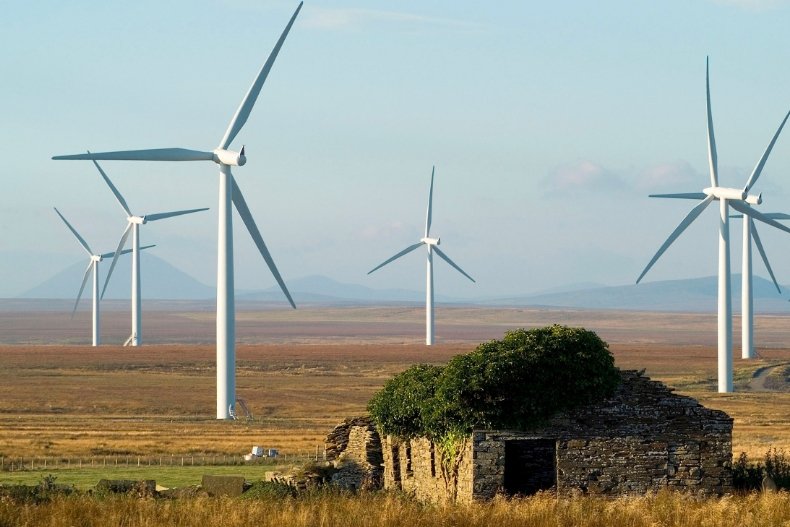Scotland’s push for independence is heating up again, with politicians like Kenny MacAskill arguing that the nation’s rich natural resources could drive a stronger economy if free from UK control. As of late September 2025, recent polls show mixed support, while experts debate the potential costs and benefits of breaking away.
Rising Calls for Change
Kenny MacAskill, a vocal advocate for Scottish independence, recently highlighted how Scotland’s abundant resources, from oil and gas to renewables, have not fully benefited its people. In a statement just hours ago, he described Scotland as a land blessed with natural wealth and talented minds, yet held back by decisions made in Westminster.
This view echoes broader sentiments among independence supporters. Deputy First Minister Kate Forbes stated earlier this month that breaking free is an economic necessity, claiming Scotland is being held back by UK policies. Thousands marched in Edinburgh recently to back this call, showing grassroots energy remains strong.
Experts point out that Scotland’s history of emigration stems from underperformance despite its assets. More Scots live outside the country than within it, a trend linked to centuries of lost opportunities.

Poll Numbers and Public Opinion
Support for independence has fluctuated in 2025. A Statista poll from March found 54 percent of Scots opposing it, with 46 percent in favor. This is a four-year high for yes voters, even as global tensions add complexity.
Public opinion splits along economic lines. Many see independence as a way to control resources, while others worry about trade disruptions.
- Key factors influencing voters: Economic stability, control over energy, and EU relations.
- Recent shifts: Support rose slightly after UK budget decisions that ignored Scottish needs.
These numbers suggest the debate is far from settled, with campaigns gearing up for potential future referendums.
Economic Impacts Explored
Independence could reshape Scotland’s economy, but forecasts paint a mixed picture. A 2021 Guardian report, updated with 2025 data, estimates leaving the UK could cost the economy up to 11 billion pounds annually, hitting two to three times harder than Brexit.
Trade with England, Scotland’s biggest partner, would face new borders. A recent SNP oversight failed to measure this impact, drawing criticism. On the flip side, advocates argue controlling renewables could boost growth.
| Aspect | Pro-Independence View | Anti-Independence View |
|---|---|---|
| Resource Control | Full say over oil, gas, and renewables for local benefit | Loss of UK-wide funding and stability |
| Trade Effects | Potential EU rejoin to offset losses | Borders could cut trade by 6-9 percent of GDP |
| Economic Cost | Long-term gains from independence | Short-term hit of 11 billion pounds per year |
| Job Impact | Growth in green energy sectors | Risk of deindustrialization in key areas |
This table shows the balanced debate, with real risks and opportunities at stake.
Analysts from CEPR note that Scotland’s trade with the rest of the UK is four times its EU trade, making separation costly. Yet, figures like MacAskill argue that without control, resources like wind and wave energy flow south without fair returns.
Lessons from Neighboring Nations
Scotland’s situation draws comparisons to countries like Norway, which turned similar resources into national wealth through independence. Norway’s sovereign fund benefits its people directly, unlike Scotland’s contributions to the UK.
Ireland, lacking heavy industry, has surged ahead with tech and tourism. A tourism official once joked that Scotland’s superior scenery and history are undermined by poor management.
Denmark and Finland also thrive as independent small nations, focusing on education and innovation. Scotland, birthplace of great minds, could follow suit if it gains full control.
These examples fuel the argument that dependence on UK decisions hinders progress, leading to industrial decline in places like Grangemouth.
Challenges and Risks Ahead
No path is without pitfalls. Independence does not guarantee success, as Ireland’s past economic troubles show. Nations can err, facing heavy costs.
In Scotland, issues like deindustrialization loom. Recent UK policies have been accused of exploiting Scottish renewables without creating local jobs or payments.
Global events, including energy crises, add urgency. With fossil fuels transitioning to green sources, Scotland’s 24 gigawatts of renewable potential could be a game-changer if managed independently.
Path Forward for Scotland
The debate ties into broader UK politics, with the 2024 general election keeping constitutional questions alive. SNP leaders push for rethinking economic models, while opponents warn of broader UK economic ripples.
As 2025 progresses, watch for new polls and policy moves. Independence could redefine Scotland’s future, turning resource blessings into widespread prosperity.
What do you think about Scotland’s independence push? Share your views in the comments and spread the word to keep the conversation going.


















